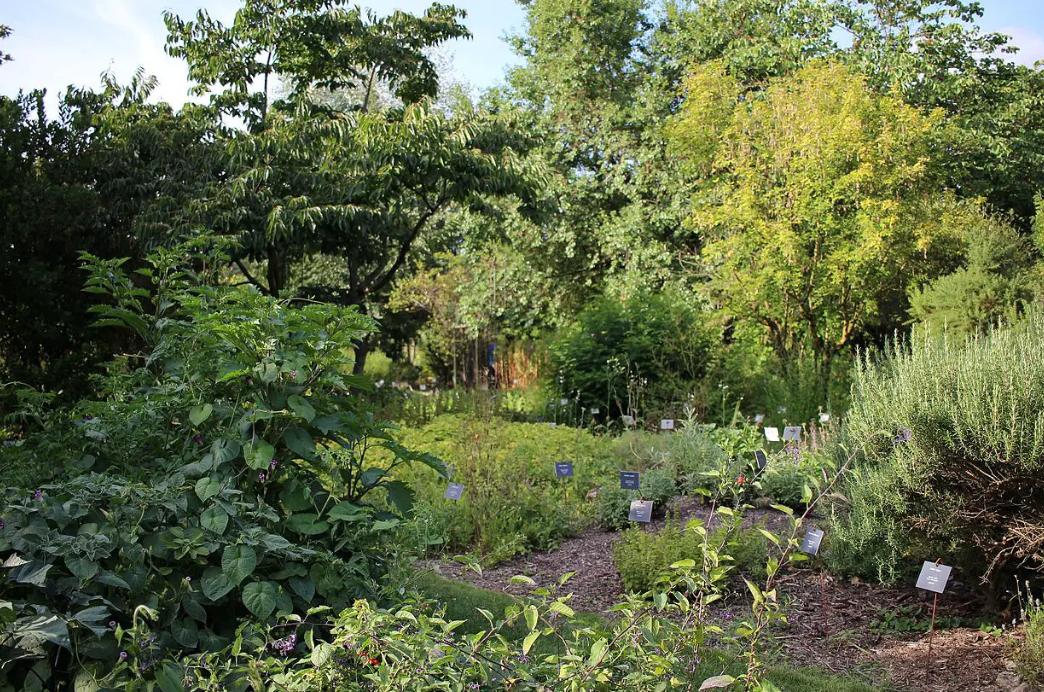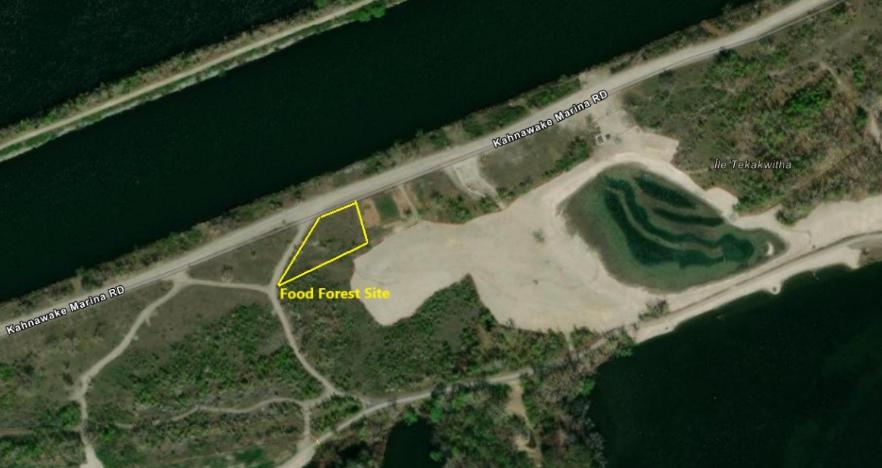
1 minute read
New Project
by kepo-mck
Kahnawà:ke's Food Forest
by Marina Gosselin, Environmental Projects Coordinator - Climate Change
This fall, KEPO will be planting a food forest on Tekakwitha Island. The goal of the food forest will be to plant native edible trees and plants to create a space for the community to come and gather food and seeds One of the aims of the forest is to both mitigate and adapt to the impacts of climate change, as well as be a source of food, medicine, and a place for Kahnawa'kehró:non to connect and enjoy. The garden will be composed of all native plants from the upper canopy, down to the ground level including trees, shrubs, flowers, and edible plants This project will also address food sovereignty, biodiversity protection, and will create opportunities for seed saving At the core of the food forest, we will plant a Miyawaki forest (a small and dense style of planting) that will provide habitat for birds and other wildlife and will help us support local biodiversity.
Focus areas of food forest:
Food sovereignty for the community, Planting native edible species of plants and trees.
Create opportunities for seed collecting.
Climate change:
Protecting and enhancing carbon stores.
Adaptation to climate change with additional food security for the community.
Educational tool to teach about plants and their care. Names of plants will be displayed in Kanien’kéha.
What is a food forest:
A food forest attempts to mimic a forest edge and the ecosystems and growing patterns found in nature. There are typically seven layers in a food forest – the overstory, the understory, the shrub layer, the herbaceous layer, the root layer, the ground cover layer, and the vine layer Planting in layers, more plants can fit in an area without creating too much competition. A food forest generally includes fruit and nut trees, shrubs, herbs, vines and perennials which are directly useful to people. Making use of companion planting, these can be intermixed to grow in a succession of layers to build a woodland habitat.
If you have any questions or would like to offer your advice or feedback on the food forest, please contact Marina Gosselin at KEPO at marina.gosselin@mck.ca or 450-635-0600.








